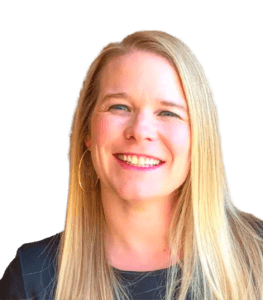
Table of Contents
Christian Counseling
with a 93.6% success rate!
If you experience anxiety on a regular basis that interrupts your daily activities, you may suffer from an anxiety disorder.
In this article, Licensed Counselor September Trent gives an overview of a few of the most common types of anxiety disorders diagnosed in adults, including Obsessive Compulsive Disorder (OCD), Social Phobia, Specific Phobia, Generalized Anxiety Disorder (GAD), Panic Disorder, and Agoraphobia.
We all deal with anxiety. At times it can be a good thing; it helps us meet deadlines and to know when we’re in danger. Other times, it can be a nuisance.
If you experience anxiety on a regular basis that interrupts your daily activities, you may suffer from an anxiety disorder.
The following are a few of the most common types of anxiety disorders diagnosed in adults.
Obsessive Compulsive Disorder (OCD)
Someone who has OCD experiences recurring and persistent thoughts about things. For example, the person may obsess about cleanliness or checking on specific things around the house. The second part of OCD consists of compulsions which silence the obsessive thoughts.
Going along with our example, someone may clean a specific part of their body numerous times per day which would dry out their skin and interrupt other responsibilities. Someone who checks things may check to make sure the stove is off 20 times before they leave the house. The thoughts are obsessions while the actions are compulsions. Most importantly, the thinking and actions interrupt daily functioning.
Social Phobia
This anxiety disorder is characterized by an intense fear of social situations where one comes into contact with unfamiliar people or scrutiny of others. Due to this fear, a person with social anxiety will avoid these situations in order to reduce the anxiety. Someone with social anxiety will fear that they will act in a certain way that makes others have a poor opinion of them.
For example, someone with social anxiety would avoid their significant other’s work party because they are fearful of being around people they do not know and acting in a way that may make others laugh or question their actions.
Specific Phobia
Someone experiencing this type of anxiety disorder would experience fear or anxiety over a specific object or situation. The specific object or situation almost always produces fear or anxiety that makes you actively seek to avoid the object or situation.
Symptoms Of A Specific Phobia:
- The fear or anxiety is extreme compared to the actual danger that can be caused by the object or situation.
- The fear or anxiety has lasted for at least 6 months.
- The fear or anxiety causes impairment in your everyday functioning.
An example of a specific phobia would be someone with an extreme fear of needles. Someone who has a specific phobia with needles would avoid them at all cost. They would avoid hospitals, doctors offices, tattoo parlors, any place where they would come in contact with needles. As you can see, this would interrupt their functioning due to being unable to see a doctor without extreme anxiety. The person may fear death or extreme sickness if stuck with a needle, and they may have to be held down at the doctor’s office.
Generalized Anxiety Disorder (GAD)
With this anxiety disorder, a person has difficulty controlling excessive anxiety over a number of events or activities.
Physical Symptoms Of Generalized Anxiety Disorder (Gad) Include:
- Restlessness
- Fatigue
- Difficulty Concentrating
- Irritability
- Muscle Tension
- Sleep Disturbance
The key to this disorder is an excessive amount of anxiety. Someone with GAD would worry excessively about finances, losing their job, the car breaking down, whether they are being a good parent, and coping with difficulties that arise.
Panic Disorder
This anxiety disorder is characterized by experiencing unexpected panic attacks.
What Is A Panic Attack?
A panic attack is an abrupt surge of intense fear or discomfort that intensifies within minutes.Someone suffering from a panic attack may experience some of the following physical symptoms:
- Increased heart rate
- Sweating and shaking
- Shortness of breath
- Feelings of choking
- Chest pain
- Nausea and dizziness
- Chills or heat sensations
- Numbness
- Fear of losing control or dying
- Feelings of being detached from oneself
Another part of this disorder consists of fear of having another panic attack or a change in behavior due to the panic attack.
Agoraphobia
Someone experiencing this anxiety disorder would experience anxiety or fear about at least two of the following situations: using public transportation, being in open spaces, being in enclosed spaces, being in a crowd, or being outside of their home alone. The person would avoid these situations because they are fearful that escape from any one of them may be impossible or assistance may not be available if panic symptoms occur.
These situations almost always produce anxiety or fear causing them to be actively avoided. Also, the fear or anxiety is exaggerated in regard to the actual danger present in the situation. These symptoms typically last for at least 6 months and interrupt the person’s functioning.
For example, someone may be fearful of crowds and being outside their home alone. They would avoid leaving their home and being in crowded places. If they came in contact with a crowded place or were alone outside their home, they would experience extreme anxiety and fear. As you can see, this would make it very difficult to hold a job or even shop for everyday items.







